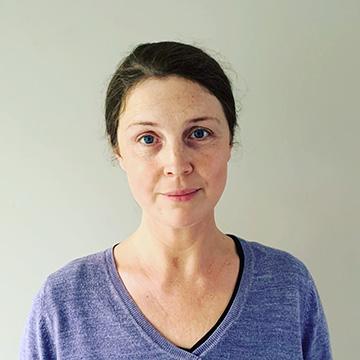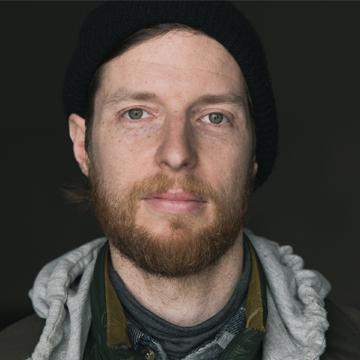MA
Art & Ecology
Content navigation menu
Why study MA Art & Ecology at Goldsmiths
This is a 15-month studio-based postgraduate programme for emerging artists who want to engage in meaningful and transformative ways with the most pressing ecological questions of our time.
- MA Art & Ecology is a unique programme that seeks to develop new ways in which contemporary art practice can make interventions in a wide range of ecological contexts, and extend the ways in which ecology is understood.
- We support artists to develop innovative and experimental art practices in diverse sites and scales dedicated to imagining and shaping liveable futures.
- Students develop a wide range of artistic and professional skills showcased in the postgraduate Degree Show and on the programme’s digital platform The Journal of Art & Ecology.
Contact the department
If you have specific questions about the degree, contact Ros Gray.
Length
15 months full-time
Fees
Home - full-time: £14120
International - full-time: £26360
Department
Link art, ecology and social justice
The Masters invites artists to develop innovative art projects grounded in rigorous artistic research and a profound understanding of how ecological challenges such as climate breakdown, pollution, and biodiversity loss are inseparable from questions of social justice.
Alongside media including painting, sculpture, printmaking, installation, performance, art writing, textiles, digital media and video, this course supports artists who engage with forms of practice such as food production, gardening, sustainable data, microbiology, mycology, citizen and expert science, re-wilding, inter-species care, somatic practices and ritual.
This is one of very few postgraduate degrees specialising in art and environment, or art and nature. We actively encourage applications from students interested in working in all manner of ecological contexts, from rural settings to ocean habitats, and from social movements and to scientific institutions.
As this programme is taught in South East London, there is also a unique opportunity to focus on urban ecology and access world-leading scientific and artistic institutions.
Experiment with your artistic practice, deepen your understanding of ecology and develop practical skills
Through the development of a 15-month artistic project, students learn skills and build networks essential to pushing the boundaries of art’s engagement with ecology, for sustaining their artistic practice after graduation, for developing as educators, producers and leaders in a wide range of fields, or for pursuing doctoral research.
While on the programme, students:
- Benefit from regular individual and group tutorials with core staff and visiting tutors
- Participate in an experimental laboratory
- Attend lectures and seminars in the history and theory of art and ecology
- Learn best professional practice through talks and workshops
Students have access to world-class art production facilities in the Art Practice Areas, including photography, time-based media, print and dye, 3D printing, ceramics, constructed textiles, stitch, casting, metalwork and woodwork. There is also:
- The Goldsmiths Allotment
- The art research garden
- A pigment garden
- An Art and Ecology Laboratory
You will also have workshops on how to develop your artistic practice after graduation and expand and refine your artistic skills. Some of our professional practice workshops focus on practical training in how to use (or even build your own) specialised technologies and tools; how to work with sustainable and regenerative biomaterials; or how to hone your skills in different kinds of writing. Others focus on real-world insights into the kinds of negotiations and realisations that are part of sustaining your artistic practice in the expanded field of art and ecology, including applying for funding, residencies and more.
Students on the MA Art & Ecology also benefit from the rich interdisciplinary research culture at Goldsmiths, which includes the Centre for Art and Ecology and the Goldsmiths Centre for Contemporary Art.
Watch videos about the programme
What you'll study
Over the 15 months, you will work on developing the project idea you have applied with. You will be supported to develop it, possibly in collaboration with external partners or particular ecological sites. You will learn key skills that will allow you to realise an ambitious body of work, and and teach you how to work with different kinds of sites and more-than-human communities.
The course will be taught through student-centred learning, where your practice is at the heart of the learning experience. Individual tutorials, group crits, the experimental laboratory, lectures, seminars, workshops and study visits provide lots of engagement from staff, tutors, and seminar leaders.
The visiting tutor system we have on this programme will allow you to have contact with leading practitioners and theorists, including artists, curators, scientists and activists. This will enable to you develop self-reflection and criticality about your practice and introduce you to an expanded professional network and a wide range of approaches to addressing ecology.
An environmentally and socially engaged institution
Goldsmiths has a strong understanding of specific issues such as environmental racism, climate justice and indigenous sovereignty, and approaches such as ecofeminism, black studies, queer ecologies, anti- and postcolonial theory, crip and disability studies, and science and technology studies.
These are topics that can be really important for any artist engaging with ecological and climate activism and academia. You will be surrounded by and have access to a great body of theoretical knowledge and criticality, allowing you to better situate your work in a self-reflective and expanded way.
Careers
The MA Art & Ecology is designed to offer you an understanding and experience of contemporary art practice engaged with ecology that has a breadth of outcomes and a variety of transferable skills.
Upon completion of the programme students will be equipped to work professionally in a range of circumstances including:
- Independent artists for whom ecology is the central concern of their practice
- Artists working independently or within collectives and/or organisations developing their own projects and for whom written funding applications, publicity and contextual statements require a key set of skills
- Cultural policy makers, teachers and academics
- Curators and programmers in the field of art and ecology
- Writers and critics
- Institutional and independent innovators
Upon completion, MA Art & Ecology graduates should be able to continue with the critically informed practice they will have fostered at Goldsmiths and go on to contribute effectively to the development of art practice engaged with ecology in whichever cultural location they are situated.
A professional network
Throughout the programme you will be introduced to and work alongside leading professionals from within the field of art and ecology, through workshops, seminars and one-to-one meetings. These will include:
- Artists
- Curators
- Programmers
- Commissioners
- Scientists
- Activists
- Writers
- Critics
- Technical experts
This will provide you with the opportunity to develop your own professional network. You will also develop your understanding of the processes of project commissioning, production, display and distribution in the field of art and ecology.
Entry requirements
You should normally have (or expect to be awarded) the following qualifications:
- BA in Fine Art or a relevant discipline
or - Equivalent experience (eg photography, architecture, performance, creative writing, and environmental humanities and sciences), if there is sufficient evidence of a strong artistic practice
Applicants will also be asked to propose a project as part of their application.
Admission is by interview only.
International qualifications
We accept a wide range of international qualifications. Find out more about the qualifications we accept from around the world.
If English isn’t your first language, you will need an IELTS score (or equivalent English language qualification) of 7.0 with a 7.0 in writing and no element lower than 6.5 to study this programme. If you need assistance with your English language, we offer a range of courses that can help prepare you for postgraduate study.
Fees and funding
Annual tuition fees
These are the PG fees for students starting their programme in the 2024/2025 academic year.
- Home - full-time: £14120
- International - full-time: £26360
If your fees are not listed here, please check our postgraduate fees guidance or contact the Fees Office, who can also advise you about how to pay your fees.
It’s not currently possible for international students to study part-time under a student visa. If you think you might be eligible to study part-time while being on another visa type, please contact our Admissions Team for more information.
If you are looking to pay your fees please see our guide to making a payment.
Funding opportunities
Explore the Goldsmiths scholarships finder to find out what funding you may be eligible for.
If you are a UK student you may be eligible for a postgraduate loan.
Meanwhile our Careers Service can also offer advice on finding work during your studies.
Paying your fees
Find out about paying your tuition fees.
Additional costs
In addition to your tuition fees, you'll be responsible for any additional costs associated with your course, such as buying stationery and paying for photocopying. You can find out more about what you need to budget for on our study costs page.
There may also be specific additional costs associated with your programme. This can include things like paying for field trips or specialist materials for your assignments. Please check the programme specification for more information.
Note
Please note, the fees listed are for the entire 15-month programme.
How to apply
You apply directly to Goldsmiths using our online application system.
To complete your application, you will need to prepare and submit:
- A proposal for an artistic project that engages with any aspect of ecology that you wish to develop during the programme (300 words maximum)
- A portfolio of completed works (consisting of 12 images and/or five minutes of moving image)
- A personal statement explaining your motivation for joining the programme and how you expect to contribute to and gain from it
- A CV with your relevant academic qualifications and work experience
- The email address of your referee who we can request a reference from, or alternatively a copy of your academic reference
- Copies of your educational transcripts or certificates
You'll be able to save your progress at any point and return to your application by logging in using your username/email and password.
Read our guide to applying for a postgraduate degree at Goldsmiths.
Top image credit: Emily Murayama, 'Sofa, So Food', 2019.







